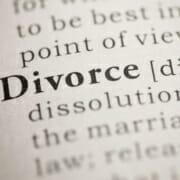2 DUI-Defense Terms Explained
The courtroom can be a confusing place for just about anyone. Although legal terms and motions seem to be second nature to the judges and attorneys, they can often leave the defendant feeling overwhelmed and lost. In reality, these terms often cover very simple concepts that can be explained easily.
Below, you’ll find a quick definition of two legal terms that you may run into during your driving under the influence (DUI) trial. Knowing what exactly these words mean can help you make legal decisions with more confidence. If you have a DUI trial coming up, it pays to hire an experienced defense attorney who knows how to fight for your interests in the courtroom.
At the Law Offices of Michael M. Raheb, P.A., we pride ourselves on standing up for our clients during their trial and helping them obtain the best possible verdict. There are many ways that you can benefit from speaking to an attorney about your case. To show you what a difference it can make, we offer a free initial consultation for new clients. To schedule yours, Call Us At 866-949-0888 Today!
1. Acquittal
An acquittal is a “not guilty” verdict in the criminal courtroom. If you are acquitted of a crime, it means that the prosecutor was unable to overcome their burden of proof and, as such, the jury or judge could not determine that you were guilty beyond any doubt.
Although an acquittal ends your criminal trial and you will not be punished by the court, you could still be liable in a civil case even after the “not guilty” verdict. This is because the opposing side has less to prove to find you guilty in a civil court.
2. Dismissal
In most cases, an acquittal and a dismissal have the same affect on the defendant—that is, they are let go and not punished. The difference lies in when and why the defendant is released.
Judges can dismiss a case for a variety of reasons, and they often do so before the case has even begun. They can dismiss because the prosecution hasn’t gathered enough evidence to warrant a trial or because there has been a violation of the defendant’s constitutional rights.
After an acquittal, the defendant is protected by double jeopardy, meaning that they can not be retried for the same crime, whereas when a case is dismissed, it may be retried under certain circumstances.
If a trial ends in either a dismissal or an acquittal, the charges may still show up on the defendant’s criminal records.
There is a great amount of variety in the legal system, so your trial can take any number of turns and could end in many different ways. If you are looking for a respected, local DUI defense attorney in Fort Myers, Call Us At 866-949-0888 Today!


































